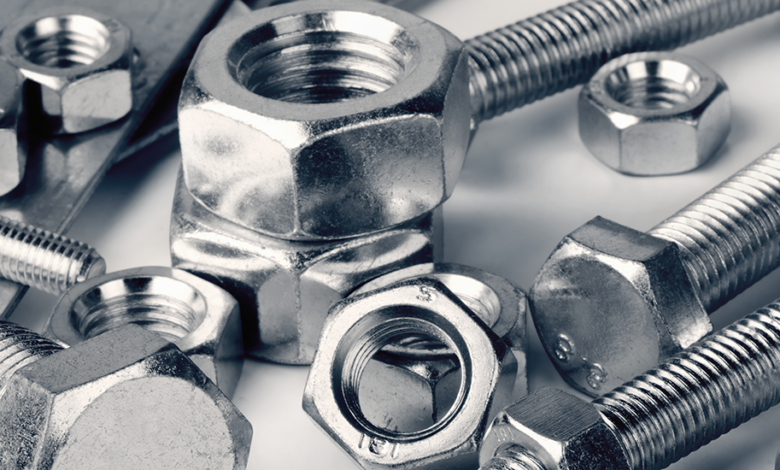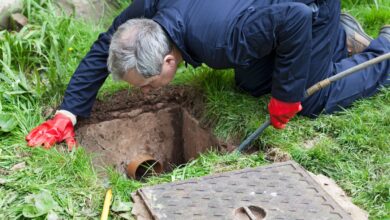Sourcing Smarter – How To Avoid Counterfeit Fasteners



Sourcing Smarter – How To Avoid Counterfeit Fasteners
The problem of counterfeiting is typically thought to affect currency and high cost, widely circulated products like designer clothing and accessories, consumer electronics, and media. But counterfeiting has been a major problem in industrial markets and affects everything from aerospace to automobile manufacturing.
One of the most worrying issues for those in the construction industry, as well as everyone who relies on infrastructure, is the prevalence of counterfeit fasteners.
Counterfeit bolts, screws, nuts, etc. are not simply trademark forgeries. They are usually mislabeled or improperly marked in an attempt to pass off substandard parts as higher quality. This means they will not perform as intended in the application, which can create extremely dangerous and costly situations.
It doesn’t even take many of these fasteners to pose such danger; just one or two sub-quality or mislabeled bolts in a critical setting can bring down an entire structure.
The problem is not new; it’s been affecting quality control in all types of structural settings for decades. And despite regulatory efforts, the issue persists. Along with other factors, changes in global markets, constantly growing competition, and inconsistent labeling and quality standards have exacerbated the problem.
Buyers who are seeking the lowest price on the greatest quantity of fasteners are most likely to be affected. However, getting a competitive price on fasteners that meet large project requirements doesn’t have to amount to risk. There are simple ways to avoid buying and using counterfeit fasteners.
If, for example, a buyer is seeking askew head bolts for purposes of updating and overhauling old electrical towers, they’ll likely need a large quantity and have a strict budget and tight deadline. This can amount to a lot of pressure.
The most pressing problems to solve are finding the specific types of askew head bolts required for the job and at a price that’s within the allotted budget. Searching by these criteria online will yield numerous results. On the surface, it seems like there are ample options, but a closer look can reveal otherwise.
Even for a fairly straightforward job, it takes more than confirmation of bolt type and price to choose a trusted askew head bolts source. To exercise some anti-counterfeiting savvy, start by looking for red flags from the earliest point in the sourcing process.
Early Indicators Of Suspect Suppliers
Warning signs to look out for include suspiciously low prices, availability that defies current material market and supply chain trends, and little or no price distinction between treated and untreated parts—for example, hot-dipped galvanized (HDG) askew head bolts and plain askew head bolts being priced the same despite the extra cost to complete hot-dipped galvanization.
Additionally, minimal to no online footprint for the supplier; labeling and descriptions that are lacking, irrelevant, or excessively wordy; limited or inconsistent contact information; and a lack of industry certifications and customer reviews should be counted as signs to move on.
Some buyers will swear by simply purchasing from a domestic fastener supplier but it doesn’t take much for a counterfeiter to falsify this information. If they do look like a legitimate source, take a small portion of their content and copy it, then perform a search.
If it looks like their information may have been taken from a competitor or another unaffiliated provider, that is a red flag.Unfortunately, counterfeiters have become quite adept at faking legitimacy online. If possible, when buying from a new supplier, order a smaller quantity for purposes of evaluation.
Having the fasteners on hand for examination will provide the best opportunity for avoiding counterfeit products. Often, substandard fasteners will reveal themselves based on some easily recognizable flaws, which include:
Issues With The Packaging
This includes inadequate, unlabeled, clearly reused packages or unusual methods of packing. If a shipment looks like it has been opened and re-taped or tampered with in some way, this can be a strong indicator of counterfeiting or suspect supplier practices.
Poor And Inconsistent Appearance
Counterfeit fasteners will often lack the correct stamping or markings that indicate various standards. They may also appear to have overlapped or misaligned stamping, or marks where previous stampings have been ground off.
Other common counterfeiting signs include: worn, distressed, and uneven threads; pitting, corrosion, discoloration, suspect coatings or treatments, or oddly bright polishes; and evidence of previous installation or tool marks.
Lacking Integrity Performance
Fasteners that do not install smoothly or pass standard inspection or testing procedures, such as the Skidmore bolt test, should be discarded as counterfeit. In some cases, the integrity of the fastener will be so poor, they will bend, warp, or break with very little manipulation.
There are various testing and inspection resources that can help clear up any questions on how a fastener will perform in a specific application. Often, more reputable fastener sources will employ these tests themselves and provide detailed results before or during the sourcing process.
The Best Way To Source High-Integrity Fasteners
In general, the best way to avoid issues with counterfeit fasteners is to be vigilant and take the time to identify a trusted and responsive supplier rather than trusting an appealing price. A little bit of research can end up saving more than just time and cost; it can avert serious pitfalls that are all too common while counterfeiting remains a pressing issue.
Buyers can also do their part to fight back by paying attention and reporting suspect goods and suppliers to the proper agencies.
Read also:7 amazing natural cleansing ingredients for a glowing face


